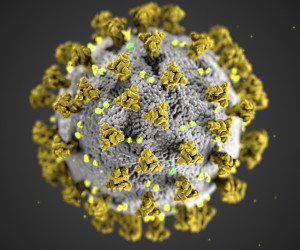
Imagine you鈥檙e trying to grab a ticket for a hot concert online. Everyone else is trying to do the same thing, and the website slows down as people fight to get in first. Now, replace that ticket with a blockchain transaction, and you鈥檝e got the idea behind a gas war. In the world of Web3 and decentralized finance, gas wars have become a real phenomenon that directly impacts transaction fees and trading strategies.
A gas war occurs when multiple users compete to have their transactions processed on a blockchain network, often during periods of high activity. The 鈥済as鈥?here refers to the fee you pay to miners (or validators) for including your transaction in a block. The higher your gas fee, the faster your transaction gets confirmed. But during a gas war, everyone starts bumping up their fees to outbid each other, which can make transactions unusually expensive.
For example, imagine a limited NFT drop or a popular DeFi token launch. Users rush to participate, each trying to pay a higher fee than others to ensure their transaction goes through first. The result? Fees can spike dramatically, sometimes making small trades inefficient or even unprofitable.
Gas wars drive transaction fees up, sometimes unpredictably. In normal times, sending a transaction might cost a few dollars in Ethereum gas. But during a gas war, that same transaction could suddenly cost tens or even hundreds of dollars. This not only affects casual users but also impacts traders who rely on precise timing for arbitrage opportunities or leveraged trades.
High fees can discourage small investors and create barriers to entry, yet they also illustrate the underlying demand and activity in the network. For professional traders, understanding gas wars is crucial. Tools like mempool monitoring and fee estimation apps allow users to anticipate surges and strategically time their transactions, keeping costs manageable.
In today鈥檚 trading ecosystem, assets aren鈥檛 just limited to crypto. Forex, stocks, commodities, indices, and options all offer opportunities鈥攂ut crypto adds the dimension of decentralized, frictionless trading. Knowing how gas wars impact fees helps traders make better decisions when executing blockchain-based strategies. For instance, someone trading tokenized commodities on a decentralized exchange can plan trades during low-fee periods, reducing costs and maximizing leverage efficiency.
Furthermore, advanced trading platforms now integrate charting tools and analytics for Web3 assets, allowing traders to visualize trends and predict network congestion. This aligns with broader trends in AI-driven trading, where algorithms can optimize for transaction timing and fee efficiency automatically.
Decentralized finance (DeFi) has opened doors for global access to financial instruments without intermediaries. Gas wars, however, highlight one of the system鈥檚 growing pains鈥攏etwork congestion and fluctuating fees. Projects are actively exploring layer-two solutions and alternative blockchains to reduce cost and improve transaction speed.
Despite these challenges, DeFi鈥檚 potential is massive. Users can leverage smart contracts to automate complex trading strategies, from options hedging to multi-asset arbitrage. AI-powered trading bots are increasingly capable of analyzing fee patterns, network congestion, and asset volatility to optimize execution. This creates opportunities for traders to act faster, more efficiently, and with greater insight than traditional markets alone.
The future of trading is heading toward smarter, faster, and more adaptive systems. Smart contract-based trading ensures that transactions execute exactly as programmed, reducing human error and enabling decentralized strategies that operate 24/7. AI-driven trading can forecast gas spikes, dynamically adjust bids, and even integrate cross-chain strategies to minimize costs while maximizing returns.
In this rapidly evolving landscape, understanding gas wars isn鈥檛 just about saving on fees鈥攊t鈥檚 about mastering timing, strategy, and technology. Traders who stay informed and leverage advanced tools can navigate market volatility with confidence.
Gas wars remind us that blockchain is alive, fast-paced, and competitive. For those ready to embrace the challenge, the rewards go beyond profit鈥攖hey鈥檙e about participating in the future of decentralized finance, exploring multi-asset trading, and utilizing technology to gain an edge. Keep your strategies smart, your tools sharp, and remember: in a world of gas wars, timing is everything.
鈥淥utsmart the rush, pay less, trade smarter鈥攚in your place in the decentralized future.鈥?
If you want, I can also create a visual-friendly version of this article with charts and graphics showing gas war fee spikes and optimal transaction timing to increase reader engagement. This would make it perfect for social media or a blog post. Do you want me to do that?




